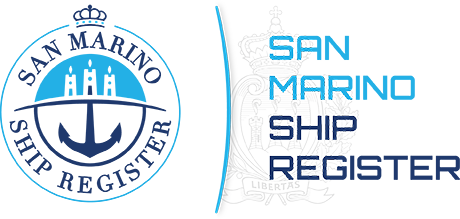Posted in Seafarers
The maritime industry can be considered among one of the most dangerous sectors in which to work. Due to the nature of the industry, accidents to personnel working onboard a ship are not uncommon; more common than those working in the industry on shore.
Seafarers work in hazardous conditions such as in cramped and hot spaces. Water, oil and the size of the machinery and cargo that is present in the environment. Working in such an environment can cause falls through tripping and slipping, resulting in sprained or broken limbs. The long hours and the physicality of much of the work that a seafarer is exposed to causes fatigue, which in itself makes a seafarer more prone to an accident.
Back in 2013, the then IMO Secretary-General, Koji Sekimizu, stated that his target was to “reduce the annual number of lives lost at sea by half by 2015.” At that time it was estimated that more than 1,000 deaths occurred at sea annually.
The ISM Code, STCW Convention, and the Maritime Labour Convention (MLC) each contain rules and regulations, which when followed, should help to reduce the number of accidents and deaths at sea. One of the three main purposes of the ISM Code was to prevent injury or loss of life at sea.
The STCW deals specifically with the training that seafarers receive with regard to their own personal safety, and the hazards that they should be aware of when working onboard a ship. The Manila Amendments to the Convention, which become mandatory in 2017, set about to further enhance the safety of seafarers. These amendments include changes in the rules on rest hours, medical standards, and an increase in the amount of overall training seafarers receive.
The International Labour Organization’s Maritime Labour Convention (MLC) 2006 outlines the various requirements that should be provided to seafarers.
Yet with all these rules and regulations in place, there are still an alarming number of deaths and casualties within the maritime industry. One of the reasons for this can be attributed to the flaunting of the rules and regulations. When a ship is on a long voyage and its seafarers are expected to work long hours with no days off, it affects their health and ability to work more safely. However, to curb such a practice is extremely difficult to achieve.
Furthermore, despite the good intentions of the Maritime Labour Convention, it cannot be denied that there are varying standards of working practices depending on the flag and nationality of the ship and its crew. The Maritime Labour Convention only sets out the “minimum” requirements that must be provided, and many flag states have opted to impose higher standards. Perhaps the minimum standards need to be raised for all flag states to impose.
MSC-MEPC.3/Circ.4 details the format and how a flag state must report an incident involving a ship. The information that is to be contained in the report is extensive. Similarly, there is also a requirement and guidelines for flag states to follow when reporting incidents and any loss of life to seafarers. However, these guidelines are not particularly robust or well defined. Therefore, the report detailing an incident involving the loss of life or injury to a seafarer varies in content and format from one flag state to another. Basically it has been left to flag administrations to devise their own reporting format.
The effect of this is that there are no truly accurate statistics which could be used to pin point specific trends when it comes to the injury or loss of life to seafarers.
What appears to be needed is a standardised format, and a set of definitions and categories which flag states should adhere to when reporting and publishing statistics. This would not only make such reports and statistics more meaningful, it would enable better analysis to find any trends when it comes to the most common causes etc.
Vessel HQ contains functionality which enables registries to complete reports and to maintain statistics on accidents to seafarers. It contains dropdown lists of onboard locations, capacities, types of accidents, and probable causes. This enables those registries using Vessel HQ to report and produce statistics easily and in a more standardised way. It also makes analysis and trending a far easier and more meaningful task.
However, until there is an internationally accepted breakdown of the types of information and terms that must be used, it is almost impossible to produce reliable statistics and analysis across registries worldwide. This is something which would be easy to implement, and could help to reduce the number of seafarers injured or killed while carrying out their duties aboard ship.







Capture, process and analyse your Maritime Administration's data while ensuring compliance with international regulations.
© 2023 Oceans HQ Ltd. All rights reserved. Registered in England and Wales under 08486423.
Registered Office: 71-75 Shelton Street, Covent Garden, London, WC2H 9JQ. VAT Registration: GB168617573